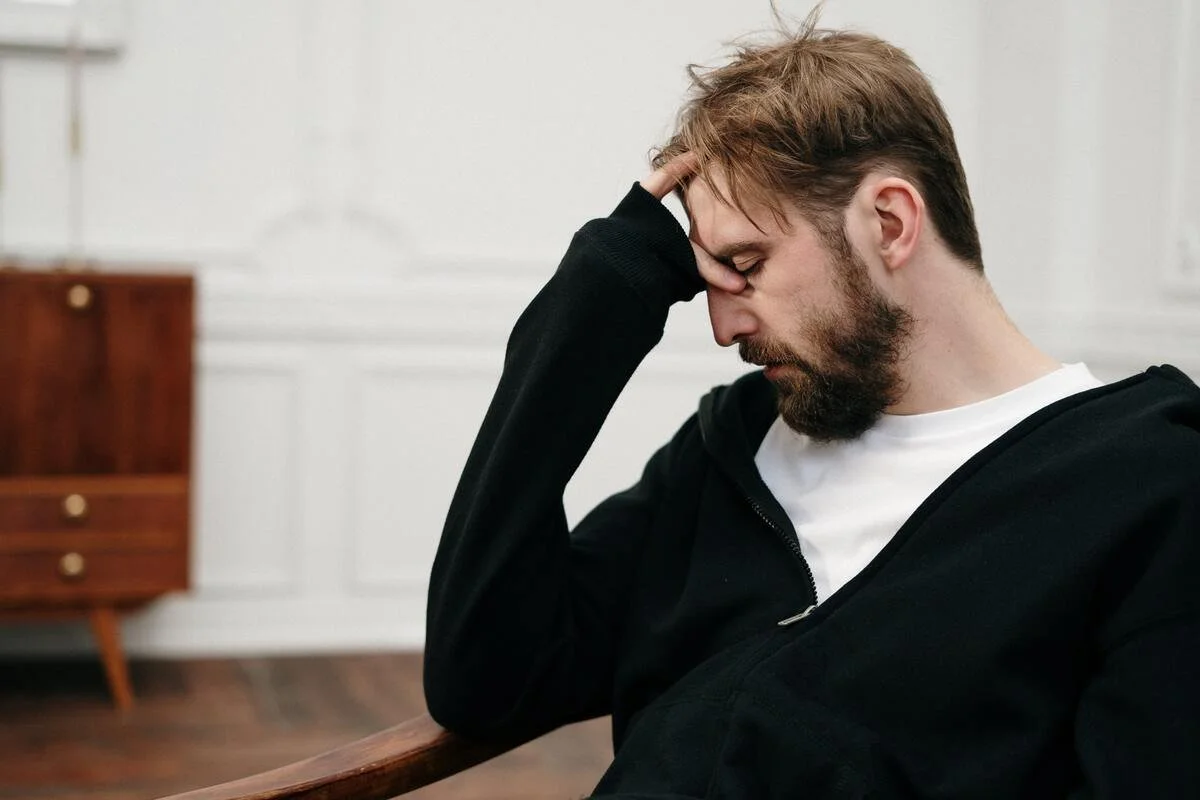Men are usually not their own best advocates when it comes to mental health. Often, men attempt to push through mental health difficulties alone, and sometimes this results in serious consequences. Understanding why men are less likely to get help is important to help address the root cause of a man’s reluctance to get help. And it gives you a better chance of helping a loved one through a difficult time.
Will Men Do Literally Anything Instead of Going to Therapy?
The National Institute of Health conducted a meta-analysis of 9 different studies, all relating to men’s willingness to seek help for mental health difficulties. The NIH (National Institutes of Health) found that men are statistically significantly less likely to seek help for mental health difficulties.
The reasoning behind these findings was complex and broke into distinct key themes:
Men experience mental health challenges in a unique way
Societal expectations and stigma
Unique Experience
Mental health difficulties in men can be pretty tricky to spot due to how men experience mental health. Women tend to focus inward when dealing with mental health challenges. Men can begin presenting symptoms that they then try to fix externally.
While a man might intuitively understand that something may not be feeling quite right, studies show that a man will seek to correct these feelings externally. Looking outward to remedy an internal difficulty sounds paradoxical. But it sheds some light on the defining traits of men’s relationship with mental health.
When dealing with feelings of unease, people may “act out” through a variety of behaviors. Alcoholism, substance abuse, workaholism, even an increase in romantic partners are all common ways in which people may attempt to overcome their feelings.
Compounding this issue, many of these behaviors might be celebrated and even encouraged by societal expectations and others around them. We are familiar with the concept that men are seen as “manly men” if they work to the point of exhaustion, have a high alcohol tolerance, and even a high number of romantic partners.
While it is starting to be recognized that these external behaviors are masks for an underlying difficulty, psychologists are still researching the best ways to preventatively provide effective care. These problems cause mental health issues in men to be widely under-diagnosed and, unfortunately, not effectively supported.
Men Seeking Mental Healthcare Are Often Stigmatized
Societal stigma surrounding mental healthcare is a direct contributor to why men are less likely to get help. In the past, society has told us that men are expected to be strong and a pillar of support for those around them. That same society is startlingly quiet when dealing with who men are supposed to turn to for help.
There is also a perception that is slow to go away, that mental health only affects women. This is another factor discouraging men to seek care for fear of seeming “not manly”. According to a study conducted by the American Psychological Association, men who exhibit more stereotypically masculine personality traits have worse mental health outcomes than women, or men who do not exhibit these traits as strongly.
While self-reliance and stoicism can be great traits to overcome challenges, they can reduce the chances that one seeks out help when it is truly needed. Pervasive societal myths regarding mental health, that depression makes one burdensome, or that only the weak ask for help; have sadly created an environment where men a) are less likely to seek help, and b) are not adequately supported.
How to Break the Cycle
While it’s true that men are less likely to get help today, thankfully, this does not always need to be the case. If you suspect someone in your life may be experiencing mental health difficulty, the best thing you can do is be supportive and have a conversation.
Let them know that you’re there for them, and that you will not judge for anything they say in confidence. Breaking barriers starts with each of us supporting those we care for.
If you are experiencing any challenges, understand that you are not a burden and it is ok to ask someone for help. While it may feel uncomfortable discussing your innermost feelings, the benefits are well worth it.
While there is still some distance to go in providing top-notch mental healthcare for men, times are beginning to change. There are a number of specialists who focus on the unique experiences that men have while seeking care.
The Walker Center was founded in 1976 to be Idaho’s premier provider for evidenced-based treatment for addiction and mental health difficulties. If you or a loved one is suffering, reach out to The Walker Center today for a confidential assessment.



